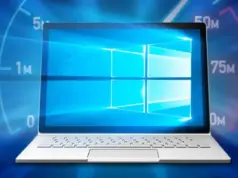One of the world’s largest and highest valued semiconductor chip makers, Intel – just announced its plans to change its processor architecture roadmap. The company will drop its customary annual ‘ tick-tock’ cycle because of the hassles posed by shrinking transistors below the standard 14nm threshold. Cannonlake has now been delayed until 2017 which was supposed to replace Skylake in 2016. Now, a new 14nm lineage codenamed Kaby Lake will be replacing it for the 2016 product refresh cycle.
At this point, not much is known about Kaby Lake, except for the fact that it’ll be fabricated at 14nm. Intel meanwhile says that it is going to release Kaby Lake which will be based on the previous gen Skylake architecture. Some experts believe it could be a mild upgrade that can be used a marketing ploy and might even help the company to work on innovations that wouldn’t have been possible with the ‘tick’ generation.
“We expect that this addition to the roadmap will deliver new features and improved performance, and pave the way for a smooth transition to 10-nanometer,” said Intel CEO Brian Krzanich. However, he acknowledged the fact that the company is now forced to drop its 8-year ‘tick-tock’ cycle and is now on ‘tick-tock-tock’.
Skylake is likely on target for a launch by the end of this year, which will be known as Intel’s sixth-gen Core micro-architecture. It is set to replace the current Haswell and Broadwell processors across devices from ultrabooks to desktops along with workstations and servers.
The announcement was made by Intel CEO during Q2 2015 earnings call, which was better than expected despite the ongoing decline of end user PC processors, largely because of the ongoing demand for data centre products and ‘Internet of Things’.
The company recently also celebrated Moore’s Law, the guiding principle behind the company that states that the number of transistors in a processor should double every 18-24 months. However, the complexities involved in its next-gen ‘Cannonlake’ chips makes it the second time in a row the company has not been able to release a CPU based on ‘Moore’s Law’ cycle.
Intel also admitted that demands for PCs have been weaker than expected, though did mention that the forthcoming Windows 10 OS might change all that.
“During this quarter, we qualified our sixth generation Core products, previously code-named Skylake for production, and we continue to see the excitement in the industry for the launch of these products and Windows 10. We worked closely with Microsoft to make sure the best Windows 10 PC and tablet experience run on Intel,” Krzanich said.










